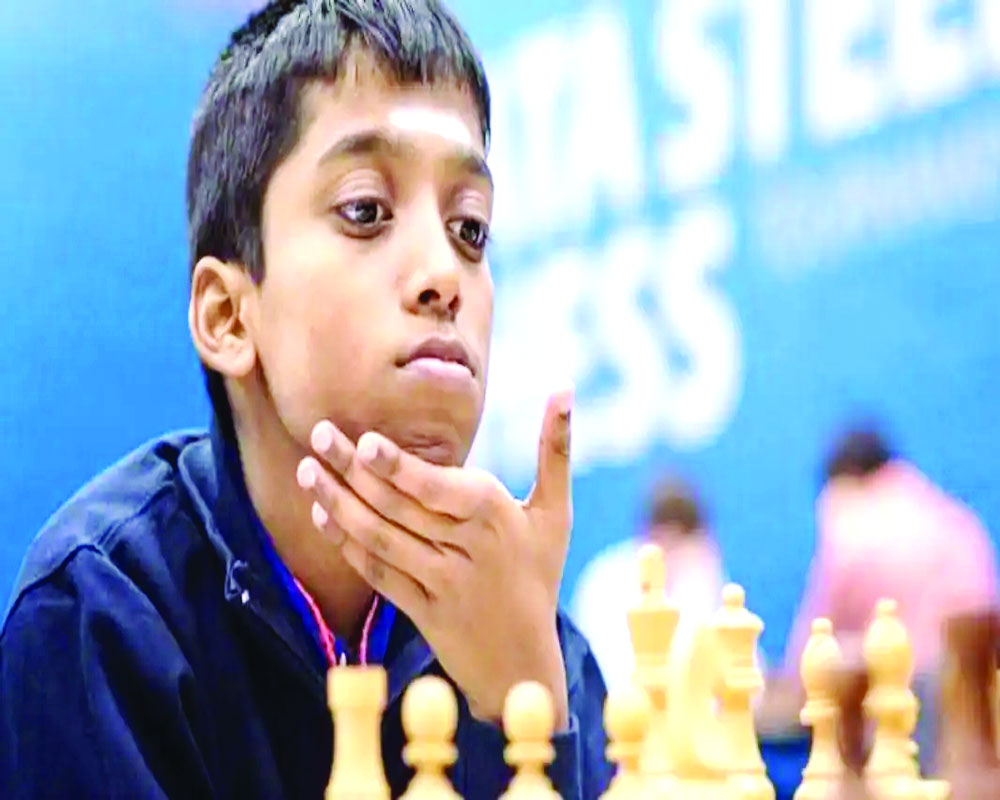Chess has been part of societies across the world. Its roots can be traced to ancient India, where it was known as ‘Chaturanga’, a game simulating battlefield
IIn the world of sports and intellect, Chess, or the ‘Game of Kings’ as it is known, holds a special place. From prodigies like 18-year-old R Praggnanandhaa, or 'Pragg’, Magnus Carlsen and Bobby Fischer to grandmasters like Vishwanathan Anand, Garry Kasparov, Anatoly Karpov and others, the game has evolved in the past two decades.
Chess has a rich and storied history that spans centuries. One of the most captivating chapters in the tale of chess's evolution can be found in India. From its origins as a courtly pastime for Indian royalty to becoming a globally recognized sport, chess in India has a remarkable journey that showcases both cultural influence and individual excellence.
Imagine the ancient kings and generals strategizing their military moves on the chessboard, the precursor to battles fought on the battlefield. Known as "Chaturanga" in ancient India, chess brilliantly simulated the four divisions of the Indian military: infantry, cavalry, elephants, and chariots. These divisions corresponded to the modern chess pieces of pawn, knight, bishop, and rook. The game wasn't just a pastime, but a mirror reflecting the art of war and strategy.
Intriguingly, the game's influence extended beyond the battlefield. The Mahabharata, a cornerstone of Indian epic literature, featured a chess match between the Pandava prince Yudhishthira and the deity Shiva, who had assumed the guise of a Brahmin. This match conveyed vital moral lessons, underscoring the importance of strategy, foresight, and decision-making in the Indian cultural context.
From its origins in India, chess embarked on an epic journey along the Silk Road, a network of trade routes connecting the East and West. It arrived in Persia in the 6th century, where it underwent significant modifications and earned the name "Shatranj." The allure of chess continued to grow as it travelled through the Islamic world and eventually reached medieval Europe, enchanting minds and shaping strategic thinking.
The Mughal Empire, which ruled over India from the 16th to the 19th century, played a significant role in the evolution of chess. The Mughal rulers, particularly Akbar, fostered an environment of intellectual and cultural exchange, not just playing the game himself, but also organizing grand chess tournaments with players of various backgrounds.
Fast forward to the 19th century, when chess underwent a metamorphosis. Standardized rules and international competitions emerged, leading to the crowning of the Austrian-American Wilhelm Steinitz as the first official World Chess Champion in 1886. Steinitz's groundbreaking contributions, including insights into positional play and the endgame, revolutionized chess strategy and elevated the game to new heights.
Germany’s Emanuel Lasker, Steinitz's successor, was a polymath who brought innovation and adaptability to the chessboard. His 17-year reign showcased his exceptional skill and comprehensive understanding of chess dynamics, securing his place as a true legend.
Wikipedia mentions that one of the most influential figures in the revival of chess in India (read Asia) was Mir Sultan Khan (later settled in Pakistan from 1947 to 1966), a humble servant from British India who rose to become a formidable chess player. In an international chess career of less than five years (1929–33), he won the British Championship three times in four tries (1929, 1932, 1933), and had tournament and match results that placed him among the top ten players in the world.
The mid-20th century heralded a significant shift as the Soviet Union rose as a chess powerhouse and World Champions like Mikhail Botvinnik, Vasily Smyslov, and Tigran Petrosian emerged from the Soviet chess school, each contributing unique strategies and playing styles. However, it was the electrifying rivalry between Bobby Fischer and Boris Spassky during the 1972 World Chess Championship that captivated the world, with Fischer ultimately claiming victory and capturing the imaginations. The late 20th century brought the enigmatic Garry Kasparov into the limelight. Kasparov's tactical brilliance redefined chess strategy. His match against IBM's Deep Blue in 1997 etched his name in history, showcasing the intersection of human ingenuity and computational power.
Back home, it was Vishwanathan Anand, who went on to become India's first Grandmaster in 1988. Anand's incredible skill and strategic brilliance elevated him to the status of a chess legend. He would later become the World Chess Champion, a title he held from 2000 to 2002 and then from 2007 to 2013. Anand's successors, including P. Harikrishna, Vidit Gujrathi, and Koneru Humpy, have also made significant contributions to the world of chess.
The 21st century has witnessed chess's resurgence, thanks to technological innovations. Online platforms and apps have democratized the game, allowing players of all skill levels to engage, learn, and compete globally. Moreover, artificial intelligence (AI) and machine learning have transformed chess analysis and preparation, with engines like Stockfish, AlphaZero, and Leela Chess Zero providing unprecedented insights.
Beyond the game's intricacies, Indian cinema has shown the prowess of the game in various forms – style, strategy, crime and culture. For example, Satyajit Ray’s "Shatranj Ki Khiladi" painted a vivid picture of the game's cultural significance. The film transported audiences to the era of nawabs and their obsession with the game, portraying chess as more than just a pastime.
Chess is a training ground for patience and perseverance. In a world consumed by the allure of mobile phones and digital screens, chess offers a refreshing and timeless escape — a game where history, culture, and innovation converge on a 64-square battlefield, making it timeless, vibrant and engaging.
(The writer is programme executive, Gandhi Smriti and Darshan Samiti; views are personal)


























